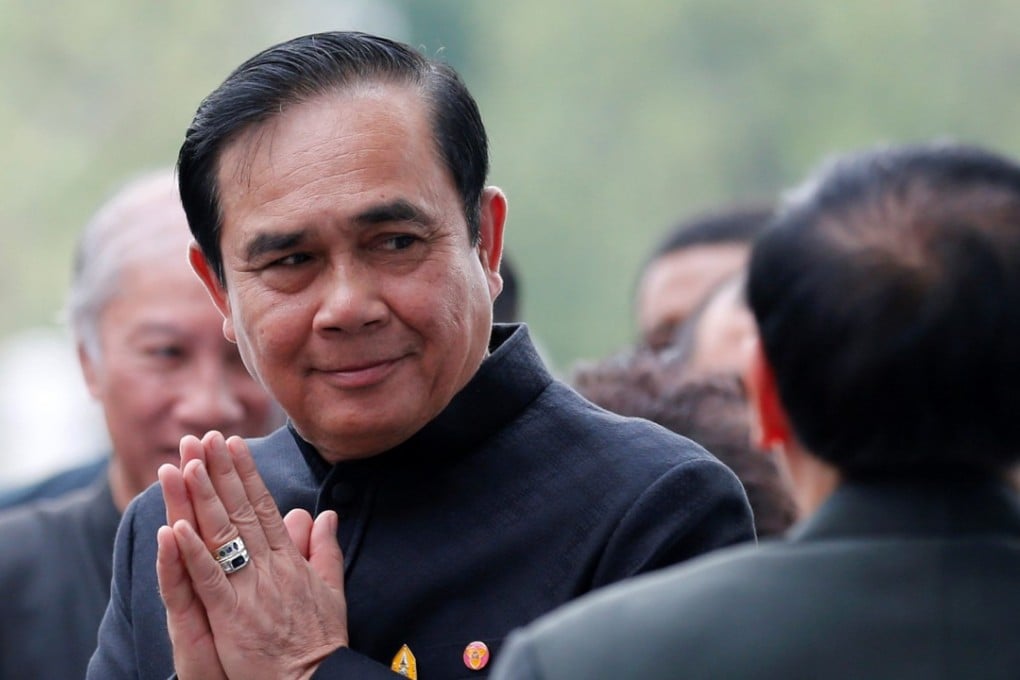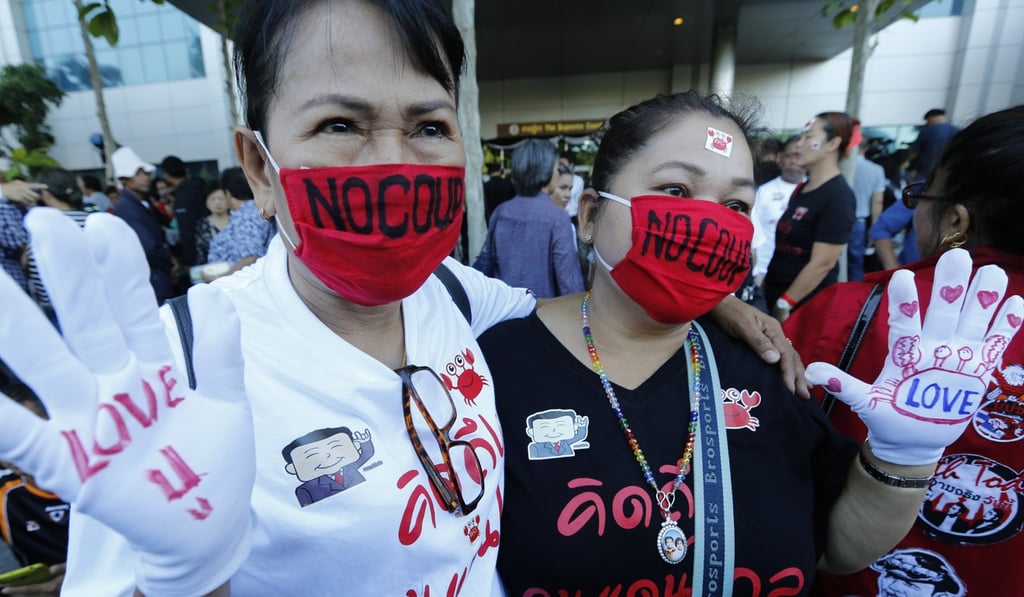Advertisement
Thailand’s junta prepares to delay the democratic dream yet again
Daniel Maxwell says the Thai public is souring on the military junta and wants its promised general election, but Prime Minister Prayuth Chan-ocha’s grip on the office appears secure whether an election happens or is delayed
Reading Time:2 minutes
Why you can trust SCMP

Four years after the military coup in Thailand, the public are eager for the National Council for Peace and Order to deliver the promised November 2018 election.
On coming to power, Prime Minister Prayuth Chan-ocha assured people the country would return to democracy the next year. Each year since, there has been another delay and, in last October, he promised that voters would head to the polls in 2018.
But, in recent months, there have been signs that the election may be delayed until 2019. Prayuth has said he is no longer a soldier, but a politician. He and his cabinet have travelled to battleground provinces in a manner like campaigning, while traditional political parties are banned from political activity.
Advertisement
There are also reports that the junta plans to form a new party. A deputy leader of the Democratic Party said the possible election delay would help the junta, which needs time to establish its own party. Delaying the election to 2019 also gives them time to improve their popularity.
During the initial period of junta rule, the national council tackled pressing issues, including corruption. There were campaigns against illegal casinos, illegal logging and land encroachment in national parks, while corrupt mayors were arrested and rice farmers received the US$2.9 billion they were owed from the rice purchase scheme under Yingluck Shinawatra’s government.
Advertisement

For Asean at 50, the fate of democracy hangs on the failings of its strongman leaders
Advertisement
Select Voice
Choose your listening speed
Get through articles 2x faster
1.25x
250 WPM
Slow
Average
Fast
1.25x